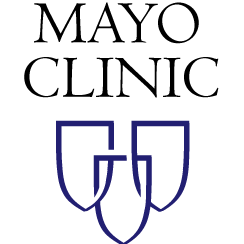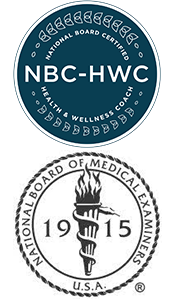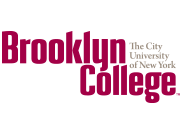
Mayo Clinic Certified Wellness Coach
I received my training at the world renowned Mayo Clinic in Rochester, Minnesota. I bring the behavioral science and evidence-based research based practices of the Mayo Clinic Wellness Coaching Model to you. The Mayo Clinic Wellness Coaching Model is based on the principles of Positive Psychology to actualize the potential within every person. I view you, the client, as the expert in your own life. As a Mayo Clinic Certified Wellness Coach, I utilize client-centered psychology, with the client in the driver’s seat, prevention research, and solution-focused coaching to help individuals harness their values and desires, and transform them into long lasting behavioral change. I do this by listening intently, without judgment, to affirm your strengths by facilitating your progress for making change towards becoming your Best Possible Self.

National Board Certified Health & Wellness Coach
I’m also a National Board Certified Health & Wellness Coach. This Board Certification is administered by the National Board of Medical Examiners, which is the organization in the United States that provides Board Certification for every medical doctor’s area of specialization.
M.A. (ABD)- University of West Georgia
I completed my Graduate studies in Humanistic Psychology, which is the underlying foundation of the Mayo Clinic Wellness Coaching Model.  The body of knowledge in humanistic and person centered psychology based on the work of Carl Rogers and others demonstrating that relationship skills, like expressed empathy, positive regard, and congruence, was necessary and sufficient drivers of behavior change. As part of my studies in this program I learned and practiced the coaching techniques of trust, rapport, empathy, and congruency. More than anything else, my graduate studies taught me the extraordinary importance of truly listening to another person. In all of his writings and teachings, Carl Rogers continually emphasized this point. I personally had the great good fortune to meet Carl Rogers and attend a weekend workshop with him when I was a psychology graduate student. Carl Rogers was the invited keynote speaker at the annual joint education and psychology departments’ conference being held that year. Carl, as he insisted on being called, conducted a weekend workshop on listening that attracted over 900 people in attendance. He ran a demonstration group on stage of 12 people, both graduate students and faculty, and I had the exceptionally good luck to be chosen to be part of that small group that was facilitated by Carl Rogers. During the course of the weekend long workshop, Carl emphasized the three elements that promote personal growth and self-actualization: unconditional positive regard, congruence, and empathy. He repeatedly stated that the key to learning these three abilities was through active, or reflective, listening. I remember him telling us that we think we listen, but we very rarely listen with a real understanding of true empathy. He said that this special kind of listening is one of the most powerful forces for facilitating behavior change and learning. At the end of the weekend workshop there was a Q&A period, and I asked Carl Rogers how long it had taken him to master the art of active, reflective listening. He smiled, looked me directly in the eye, and said, “I haven’t mastered the ability to listen emphatically, and no one ever really does. We just continue to learn how to be better at it. It’s a journey, not a destination.” To this day, I have never forgotten his answer, and that weekend workshop was a defining moment in both my professional and personal development.
The body of knowledge in humanistic and person centered psychology based on the work of Carl Rogers and others demonstrating that relationship skills, like expressed empathy, positive regard, and congruence, was necessary and sufficient drivers of behavior change. As part of my studies in this program I learned and practiced the coaching techniques of trust, rapport, empathy, and congruency. More than anything else, my graduate studies taught me the extraordinary importance of truly listening to another person. In all of his writings and teachings, Carl Rogers continually emphasized this point. I personally had the great good fortune to meet Carl Rogers and attend a weekend workshop with him when I was a psychology graduate student. Carl Rogers was the invited keynote speaker at the annual joint education and psychology departments’ conference being held that year. Carl, as he insisted on being called, conducted a weekend workshop on listening that attracted over 900 people in attendance. He ran a demonstration group on stage of 12 people, both graduate students and faculty, and I had the exceptionally good luck to be chosen to be part of that small group that was facilitated by Carl Rogers. During the course of the weekend long workshop, Carl emphasized the three elements that promote personal growth and self-actualization: unconditional positive regard, congruence, and empathy. He repeatedly stated that the key to learning these three abilities was through active, or reflective, listening. I remember him telling us that we think we listen, but we very rarely listen with a real understanding of true empathy. He said that this special kind of listening is one of the most powerful forces for facilitating behavior change and learning. At the end of the weekend workshop there was a Q&A period, and I asked Carl Rogers how long it had taken him to master the art of active, reflective listening. He smiled, looked me directly in the eye, and said, “I haven’t mastered the ability to listen emphatically, and no one ever really does. We just continue to learn how to be better at it. It’s a journey, not a destination.” To this day, I have never forgotten his answer, and that weekend workshop was a defining moment in both my professional and personal development.
B.A. – Brooklyn College, City University of New York
 I had a double major in Psychology and English as an undergraduate student. One of my primary interests at that time was what motivates people to behave the way they do. I also focused on how people express their emotions and feelings, both in the spoken and written word. These interests eventually led me to pursue my graduate studies
I had a double major in Psychology and English as an undergraduate student. One of my primary interests at that time was what motivates people to behave the way they do. I also focused on how people express their emotions and feelings, both in the spoken and written word. These interests eventually led me to pursue my graduate studies
